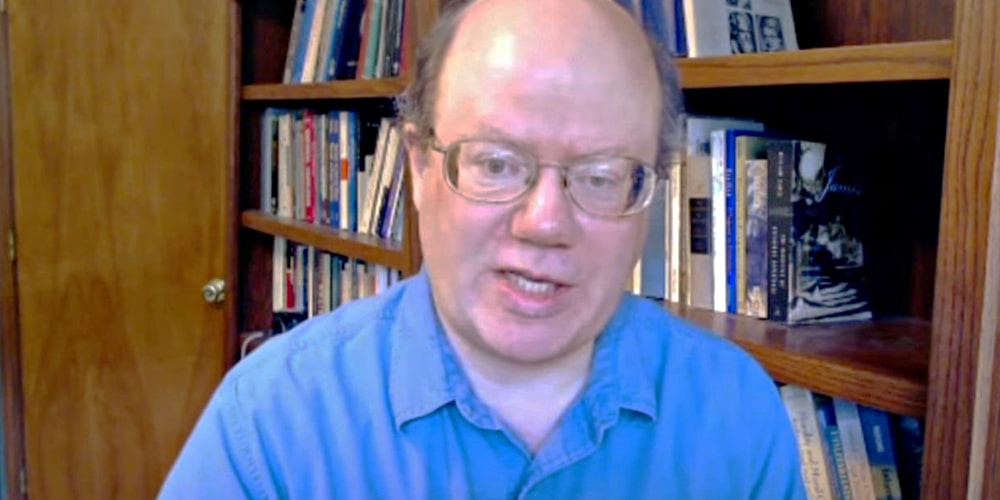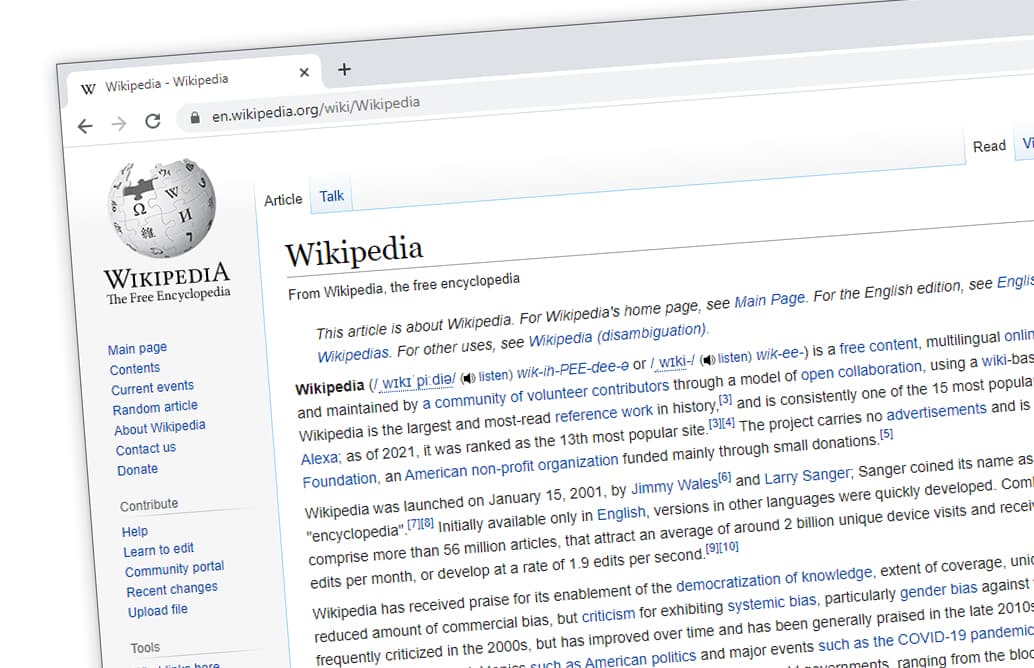For years, people on the web and beyond use Wikipedia as reference to what they are looking for. Wikipedia has no shortage of information, even when that information has just happened.
The online encyclopedia is so influential and "trusted" as an external repository of knowledge, that even Google relies heavily on it.
Whenever someone uses its search engine to search for something, and whenever Wikipedia has an article for it, Google will put Wikipedia far on top of most others in its search engine results pages.
Larry Sanger is the co-founder of Wikipedia, and he is not fond of what he helped create.
This time, he criticized Wikipedia, saying that it is "disheartening" to see what he sees.
Nobody should trust the online encyclopedia because the contents have been biased towards certain opinions or thoughts.
Sanger slams that Wikipedia's left wing "woke" bias, and claims that its days of "neutrality are long gone."

In an interview with UnHerd, Sanger said that:
"Wikipedia is known, now, by everyone to have a lot of influence in the world […] so there is a very big, nasty, complex game being played behind the scenes to make the articles say what somebody wants them to say."
"The Biden article, if you look at it, has very little by way of the concerns that Republicans have had about him."
"So if you want to have anything remotely resembling the Republican point of view about Biden, you’re not going to get it from the article."
Another example is Donald Trump's page. Many information there is negative. But Barack Obama's page fails to mention some well-known scandals.
"As you can imagine, the idea that the article is neutral is a joke. Just for example, there are 5,224 none-too-flattering words in the 'Presidency' section," Sanger said.
"Wikipedia frequently asserts, in its own voice, that many of Trump’s statements are 'false'. Well, perhaps they are. But even if they are, it is not exactly neutral for an encyclopedia article to say so."
Wikipedia was launched on January 15, 2001, by Larry Sanger and Jimmy Wales.
Because it allows people to contribute, the online encyclopedia was able to grow past even its co-founders' expectation.
It was Wales who is credited with defining the goal of making a publicly editable encyclopedia, while Sanger is credited with the strategy of using a wiki to reach that goal. Sanger was the one who coined its 'Wikipedia' name as a blending of "wiki" and "encyclopedia".
The problem is, Wikipedia is "the free encyclopedia that anyone can edit," and is not perceived as credible by librarians and academics because it lacks a formal review process.
Because of this, Wikipedia is an "anti-elitist."
"What little can be found is extremely biased and reads like a defense counsel’s brief, really," Sanger said.
"There is a rewritten policy, but it endorses the utterly bankrupt canard of journalistic ‘false balance,’ which is directly contradictory to the original neutrality policy. As a result, even as journalists turn to opinion and activism, Wikipedia now touts controversial points of view on politics, religion, and science," Sanger said.
"Examples have become embarrassingly easy to find."
"The word for it is propaganda," he said.
"There are a lot of people who would be highly motivated to go in and make the article more politically neutral but they’re not allowed to," Sanger said.
Contributors and volunteers can say or add anything to Wikipedia, as long as it is relevant and has a source. What's more, they can also debate their opinions and thoughts in the 'Talk' section of the encyclopedia, and defend their contribution.
And all that in the end, is to have the contribution added and accepted by the overall community.
This is the source of bias, the very thing that makes Wikipedia a not reliable source of truth.
For these reasons, Sanger said that nobody should trust the crowd-sourced online encyclopedia as many of its volunteers are biased and left-leaning.
People won't get a complete view on the topics.
Sanger said that Wikipedia lost its neutral nature in 2009, before which editors from all ideologies will debate equally before deciding what should be published on the platform.
He said that issues from COVID-19 to Biden and others, many articles on Wikipedia have become partisans.

Sanger's woes with the company were first revealed in 2004.
After all, Sanger and Jimmy Wales, another co-founder of Wikipedia, aren't the bests of friends.
In 2007, Sanger criticized Wikipedia again after the launch of Citizendium, another wiki-based encyclopedia he created to address the 'flaws' with Wikipedia.
Sanger said that Wikipedia was "broken beyond repair" and had "a whole series of scandals" from "serious management problems" to "frequently unreliable content."
"I thought that the project would never have the amount of credibility it could have if it were not somehow more open and welcoming to experts," Sanger said in 2009.
"I think Wikipedia never solved the problem of how to organize itself in a way that didn't lead to mob rule," Sanger said in 2015. "People that I would say are trolls sort of took over. The inmates started running the asylum."
In 2019, Sanger called Wikipedia "a broken system," and in 2020, said that the site no longer had an effective neutrality policy.
"The notion that we should avoid “false balance” is directly contradictory to the original neutrality policy. As a result, even as journalists turn to opinion and activism, Wikipedia now touts controversial points of view on politics, religion, and science," he said.
Even Larry Sanger's own Wikipedia page documents a long history of criticisms he made against the site he co-founded.
Sanger said that he is working on 'Encyclosphere', but still hopes that Wikipedia could be "fixed."